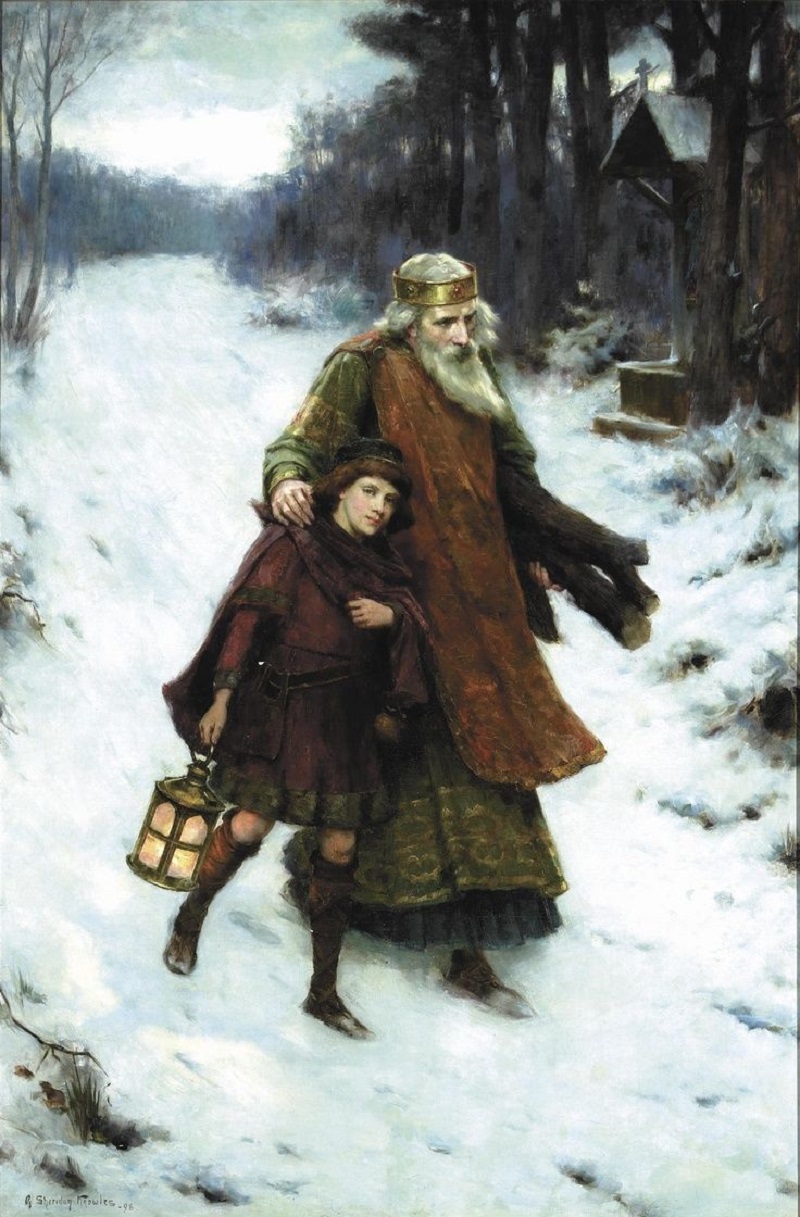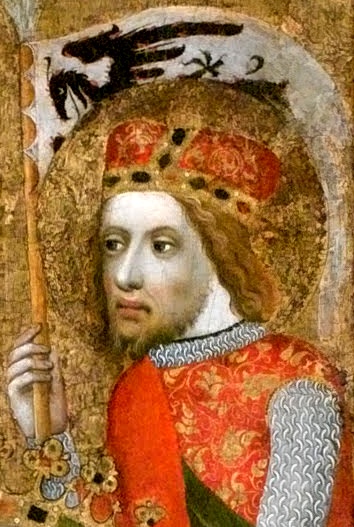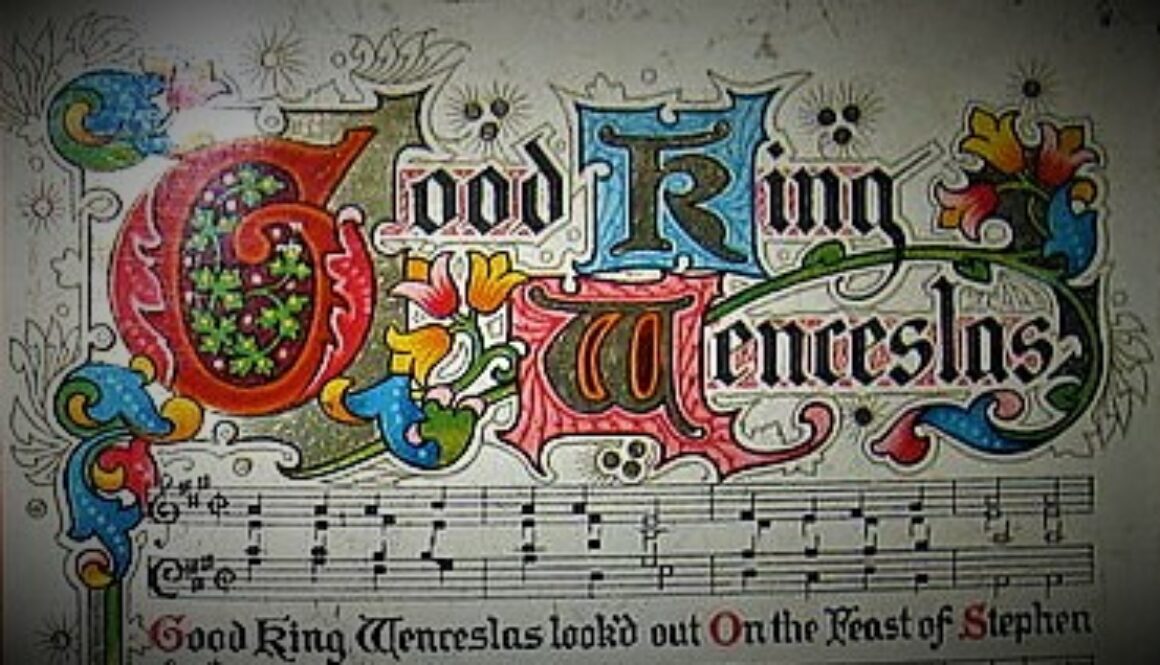Good King Wenceslas
Good King Wenceslas looked out, on the Feast of Stephen,
When the snow lay round about, deep and crisp and even;
Brightly shone the moon that night, tho’ the frost was cruel,
When a poor man came in sight, gath’ring winter fuel…
Good King Wenceslas is one of my favourite carols, for its Anglo-Bohemian links.
It is quite unusual, I mean for a Christmas carol, for there is no reference to the nativity. It was written in 1853 by English hymn writer John Mason Neale. I love the fact that, surprisingly, Neale wrote the lyrics to the melody of a 13th century spring hymn, which celebrates the time when everything is in bloom.
And here’s another paradox for you: the Czechs hardly know this carol!
An Anglican church priest and scholar, Neale might have come across the legend of Wenceslas during his studies of the unification of Eastern Orthodox Christians with the Anglican church.
And perhaps this fragment by the Bohemian chronicler Cosmas from 1119 inspired him:
‘…but his deed I think you know better that I could tell you… no one doubts that, rising every night from his noble bed, with bare feet and only one chamberlain, he went around to God’s churches and gave alms generously to widows, orphans, those in prison and afflicted by every difficulty, so much so that he was considered not a prince, but the father of all the wretched.’
 The story is widely known: on a frosty winter night, a warm-hearted king Wenceslas looks out of his castle window and spots a peasant gathering wood.
The story is widely known: on a frosty winter night, a warm-hearted king Wenceslas looks out of his castle window and spots a peasant gathering wood.
He summons his page and together they set out to bring him alms – not just wine and meat, both beyond reach of the poor, but also logs – forests belonged to landlords and peasants were not allowed to harvest wood; all they could do was to pick fallen twigs and branches.
Halfway through, the young page is about to give up, shivering with cold and struggling to wade through the masses of snow. The king offers him his own cloak and encourages him to continue, following his footprints, step by step. Such was the power of the king’s goodness that the snow melted in his footprints and the ground warmed up.
But who was he, the real good king Wenceslas?
To be honest, there are more legends about his life than there are reliable historical accounts.
 What we know is that Wenceslas was a 10th century sovereign from the Bohemian Přemyslid dynasty. He was the son of Vratislav, the Duke of Bohemia. His mother was Drahomira, the daughter of the pagan tribal chief.
What we know is that Wenceslas was a 10th century sovereign from the Bohemian Přemyslid dynasty. He was the son of Vratislav, the Duke of Bohemia. His mother was Drahomira, the daughter of the pagan tribal chief.
He was raised by his paternal grandmother Ludmila, as was his younger brother Boleslav. Ludmila was known for her religious devotion and kindness and under her tutoring, Wenceslas embraced Christianity, altruism and piety.
His mother Drahomira became jealous of Ludmila’s influence over the young prince, and perhaps also due to the religious discord, Drahomira had her killed.
Wenceslas became the 4th Duke of Bohemia after his father’s death, probably in 921. Although legends unreservedly portray him as a pious man, ‘a monk on the throne’ even, his successful domestic and foreign policies suggest he was an able sovereign.
To avoid disputes between his younger brother and himself, Wenceslas divided the country, assigning Boleslav a considerable territory.
Those were turbulent times though, politically and religiously; part of the nobility united behind Boleslav and they plotted to kill the Duke.
Wenceslas was assassinated by his own brother Boleslav ‘The Cruel’ who then took over the reign of the entire Duchy. The year of the assassination is not clear, it was 929 or 935, but what we know is that it happened on 28th September.
Following his death, Wenceslas was revered as a saint and a martyr and a cult of Wenceslas grew in Bohemia as well as in England. Although he died as a Duke, the Holy Roman Emperor Otto I promoted him posthumously and gave him the title King of Bohemia a few years later.
The day of his assassination – 28th September – was made his Saint’s Day after Wenceslas was spontaneously canonised in 973 and became the patron saint of Bohemia.
After the formation of Czechoslovakia in 1928, the St. Wenceslas’ cult was revived to a new strength, and 28th September also became the Czech Statehood Day. For the Czechs, it is an important national holiday, and St. Wenceslas is by far their favourite saint. The modern form of the King’s name – Václav – is a popular Czech name.
